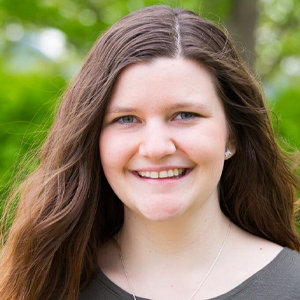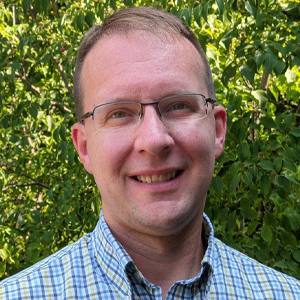For crisper class projects, collaborating with a librarian can be your gDNA
While today’s undergraduates are at home in the digital world, many do not know how to sort through the noise to find and organize information. For example, when a student comes across a peer-reviewed article about dark DNA blackholes in PubMed, do they have the skills to evaluate it? Or do they believe it is accurate because it has the peer-reviewed stamp of approval?
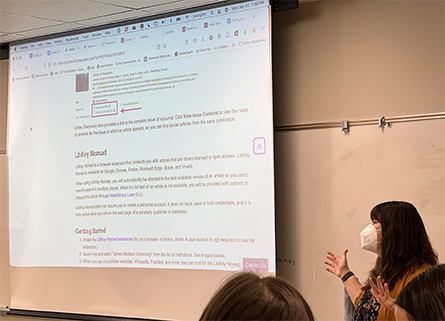
to gain access to scientific literature.
We have found that some students are more accustomed to searching in Google with natural language than in a research database using keywords. They prefer to use the search function instead of creating a directory structure to organize the sources they find. How do we teach our students these information and data literacy skills?
Students face many challenges: choosing valuable and efficient resources; gaining access to articles behind paywalls; and evaluating the reliability of information from preprints, online lectures, or non–peer-reviewed sources. Along with these challenges, students have questions about the research process.
This is where a librarian comes in.
For the past several years, we (a biochemist and a librarian) have collaborated to address these obstacles in undergraduate biochemistry lecture and lab courses. We thought some science department faculty might be interested to learn how partnering with a science librarian in the classroom works.
The partnership began when the biochemist reached out to the librarian and asked if she could help his biochemistry students improve their citations in class. We set up a meeting to further discuss this request so the librarian could better understand the citation problem; she hoped this was not just a request to come to a class to teach a specific citation style. When we met, we agreed the root of the problem was that students were not finding the best sources, and therefore the information cited could be of better quality. The problem was less about citation style and more about how students found sources and evaluated information. After this meeting, we got to work.
Looking at previous class projects, we noticed that students were getting their information from popular general-use websites such as HealthLine and LiveStrong rather than journals or academic websites. We learned that students don’t always know about the best resources for biochemical information, especially if they have no previous research experience in the field. Experienced scientists know how to find information and reliable sources; the challenges come in explaining the step-by-step process or the benefits of one search tool over another.
We have structured our courses as project-based classes that benefit from acquainting students with literature. However, if students do not know where to search, they have difficulty finding good resources and may lose their motivation to explore and find information.
How do we get students to search effectively? We start by defining what resources would be the most efficient and helpful to share with students while also reflecting our open science values. Open resources in biochemistry exist, but students need help gaining access to them and understanding their importance as resources for biochemical information. We teach the use of UniProt, the RCSB Protein Data Bank, PubMed, OMIM and PubChem for students to find information, while using the Open Science Framework and Zotero to aid students in managing their research activities. Several of these resources narrow down where to find information, so students are not overwhelmed. The others help streamline and organize the projects.
| Resource |
Description |
|
Open-access database of human genes and variants |
|
|
Open-access database of 3D structures derived from X-ray, NMR and cryo-EM experiments |
|
|
Freely accessible search interface for chemical information including, but not limited to, chemical and physical properties, biological activities and toxicity information |
|
|
Freely accessible search interface for biomedical and life sciences that includes sources from MEDLINE, PubMed Central (PMC) and Bookshelf |
|
|
Open-access, online software to aid in project collaboration and dissemination of data |
|
|
Open-access database of protein structure and function |
|
|
Open-source citation management tool that saves, organizes, generates, integrates and shares citations |
We make sure to incorporate these resources into the projects students work on during the course. For example, students might use PubMed to search literature while exploring the diverse scientists in the biochemical field, or they extrapolate mutation data from Uniprot to explain the molecular basis for disease.
The librarian provides videos on using the resources and best practices to search for biochemical information. She joins the class twice to dig deeper and discuss ways to find information and learn more about the scientific process. She is also available to meet with students throughout the semester when questions arise. Students typically ask for more help in searching PubMed or UniProt, expanding their possible keywords to use in searches, and using Zotero to its fullest potential. While these topics are taught or brought up in the instruction sessions, one-on-one consults can lead to the student learning more than what was taught in the class session.
We work with students so they can understand better how to evaluate and synthesize information. They learn to examine critically who the authors are, where they publish and who is citing the information. We each bring our own perspective as a biochemist and librarian to these discussions; we can connect information that flows from one field into the other and, in the process, emphasize the importance of librarians and libraries during the scientific process.
As we become more comfortable with our collaboration and better understand students’ interests, class discussions have evolved from the nuts and bolts of searching for information to more in-depth conversations about how scientific information is created and disseminated and how scientific research continuously evolves. Students learn how the research they find in the literature is recorded and shared with the scientific community and beyond. They also learn about the nuances and systemic issues in the research world such as gender issues in scientific publishing, challenges in responsible sharing of data, and article retractions. Students understand that science is a human process: Ideas are discovered, tested and modified. They learn that by effectively searching for information they can see this entire process.
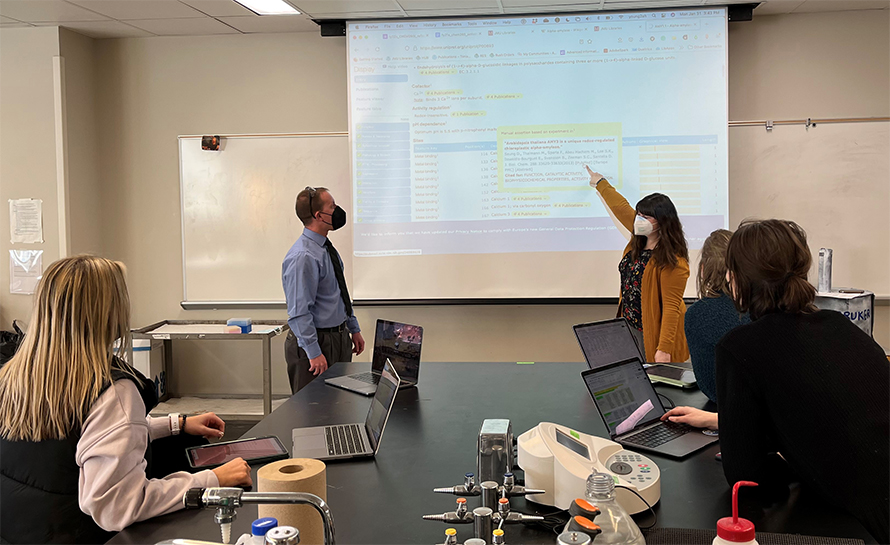
The collaboration between a biochemist and librarian also allows the two of us to learn more about one another’s roles in the scientific process, and we better understand how we can support one another. While we use many of the same search tools, we learn from one another and improve our skills based on the type of information we might be searching for. The librarian always is learning more about the information found within UniProt, while the biochemist continues to learn how MeSH terms work in PubMed. By collaborating, we often share sources from our fields related to topics discussed in class that expand our knowledge in those areas. For example, we both have found resources about open-access publishing from different sources related to our fields that we share with one another. This allows us to expand from the sources in our own fields and see shared interests from different field perspectives.
Our collaboration benefits all involved. We’ve had to take time away from the usual course content to add information and data literacy instruction, but there are rewards. These lessons help students understand why they are doing what they do in science courses. A previous student, Claire, said, “Although literature searches are an important aspect of science, I was not confident in my ability to successfully do so as a sophomore at JMU. Alyssa’s explanations of library resources, popular STEM databases, and searching techniques made literature reviews more approachable. I have continued to use these skills outside of the biochemistry course.”
Students can transfer information and data literacy skills to other courses and continue to expand on them throughout their careers.
Another student, Roma, said, “I appreciated that Alyssa would moderate discussions in class about ethics in science and considered her a very useful resource for searching through recent and relevant literature for any of my chemistry classes or labs.”
So take a chance and reach out to your library; you might be surprised at how your course will change.
In 2022 and beyond, we will be hosting a series of conversations for librarians and scientists aimed at increasing collaboration between these communities to further student information literacy. Please reach out to us if you would like to be involved.
Opening up biochemistry
A workshop for librarians and biochemists to learn, partner and share
For scientists, information literacy skills are more important now than ever before. Students have many possible avenues where they can look for information, and navigating effectively to the best source can be overwhelming if they don’t know where to start. For scientists and instructors to helps students with this navigation, it is a great idea for them to work with a librarian.
We invite you to join us on Thursday, April 14, 1 pm - 4 pm Eastern to discuss forming collaborations between scientists and librarians. Register here.
Enjoy reading ASBMB Today?
Become a member to receive the print edition monthly and the digital edition weekly.
Learn moreFeatured jobs
from the ASBMB career center
Get the latest from ASBMB Today
Enter your email address, and we’ll send you a weekly email with recent articles, interviews and more.
Latest in Opinions
Opinions highlights or most popular articles
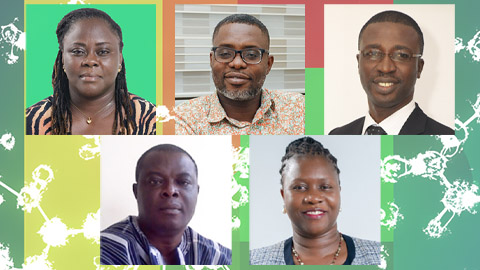
Getting to know scientists half a world away
In a program at Wellesley College, students interview and write about researchers at a university in Ghana.

Let’s make ASBMB awardees look more like BMB scientists
Think about nominating someone outside your immediate network.
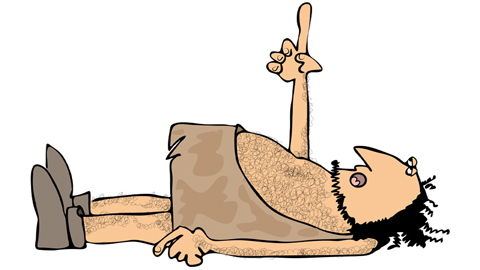
A paleolithic peer review
You might think review panels have only been around for the last century or so. You would be mistaken.
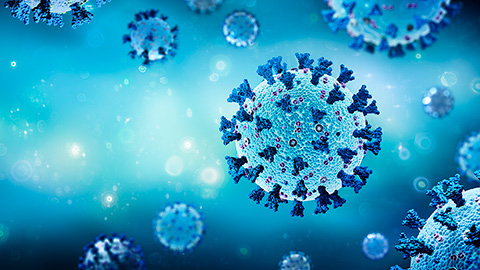
Early COVID-19 research is riddled with poor methods and low-quality results
The pandemic worsened, but didn’t create, this problem for science.

So, you went to a conference. Now what?
Once you return to normal lab life, how can you make use of everything you learned?
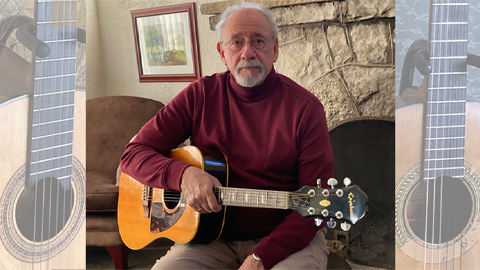
My guitar companion
A scientist takes a musical journey through time and around the world.

